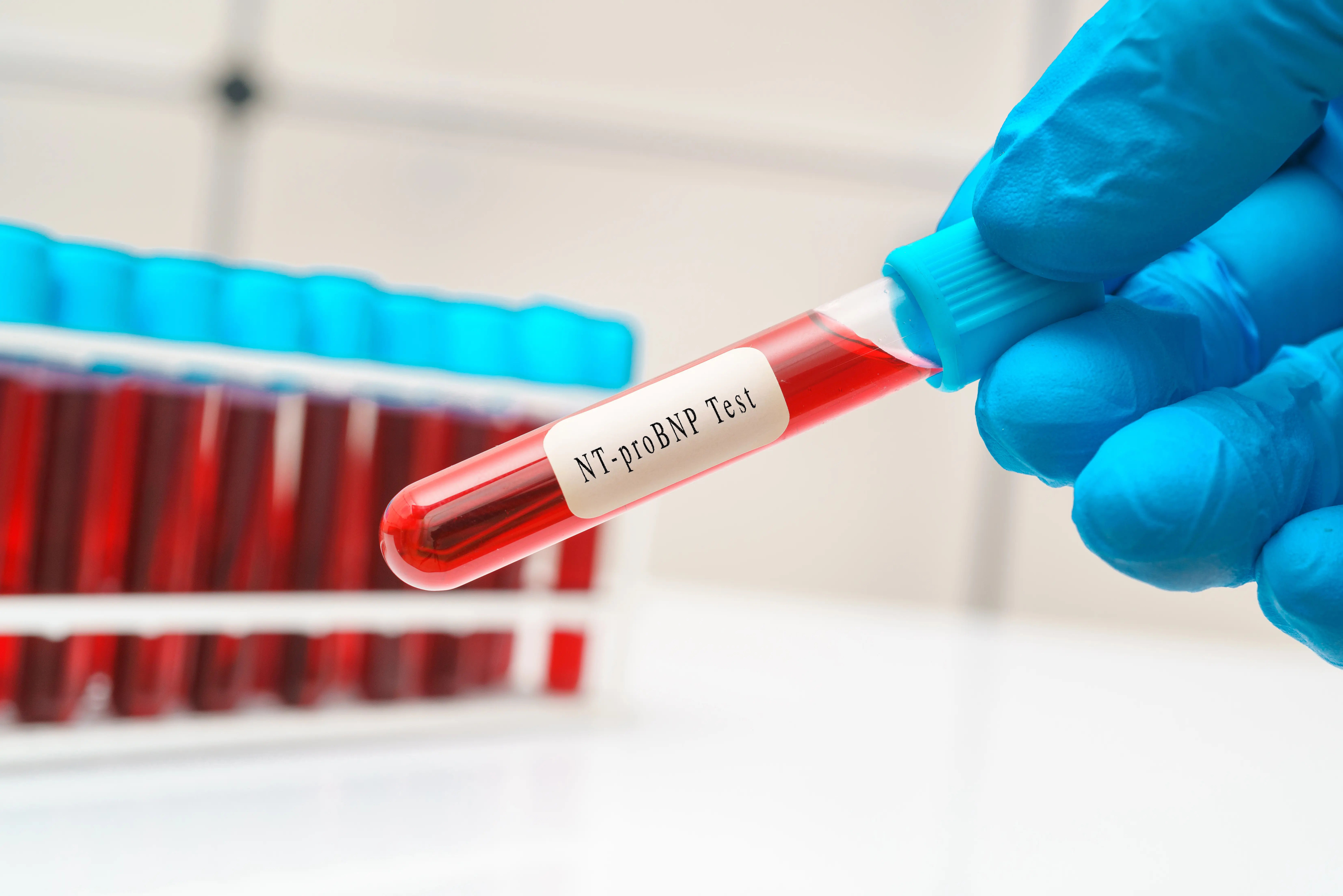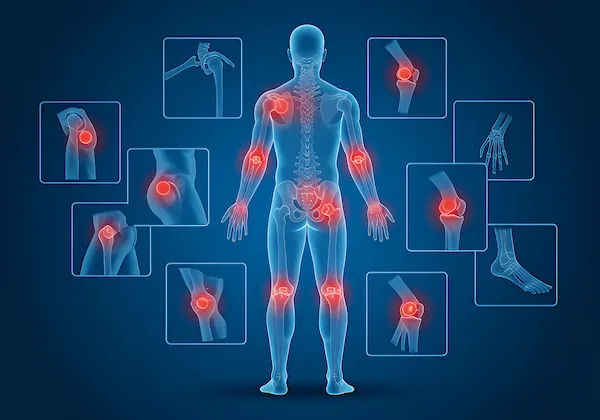What Leads To Signs Of Delayed Periods Diagnosis Treatment
Understand the signs of delayed periods, their common causes, diagnosis, and treatment options. Learn when to seek medical advice for menstrual irregularities.

Written by Dr. Vasanthasree Nair
Reviewed by Dr. D Bhanu Prakash MBBS, AFIH, Advanced certificate in critical care medicine, Fellowship in critical care medicine
Last updated on 13th Jan, 2026

A delayed period can be a source of significant anxiety and confusion. While a late period is often the first sign of pregnancy, it's far from the only explanation. Your menstrual cycle is a complex symphony of hormones, and countless factors can disrupt its rhythm. Understanding what's behind a missed period is the first step toward addressing it. This comprehensive guide will walk you through the common and uncommon causes of delayed periods, from everyday stress and lifestyle factors to underlying medical conditions like PCOS and thyroid disorders. We'll explore how healthcare providers approach diagnosis, what to expect during an evaluation, and the wide range of treatment options available to help regulate your cycle and support your overall health. Whether it's a one-time occurrence or a persistent pattern, this article will equip you with the knowledge you need to navigate this common health concern.
When Is a Period Considered Officially Late?
A period is generally considered delayed if it hasn't started within 5-7 days of its expected date. If you consistently go 35+ days without a period, this is termed oligomenorrhea and should be evaluated by a doctor.
Common Causes of a Delayed Period
Pregnancy: The Most Well-Known Cause
Conception and the subsequent implantation of a fertilized egg halt your menstrual cycle. A missed period is often the very first indicator of pregnancy.
Stress and Its Impact on Hormones
When you're under significant physical or emotional stress, your body produces high levels of cortisol. This stress hormone can interfere with the hypothalamus, the part of your brain responsible for regulating your period. This can pause ovulation, leading to a late period.
Significant Weight Fluctuations and Diet
Being significantly underweight or having a low body fat percentage can disrupt hormonal production and halt ovulation. Conditions like anorexia or bulimia are strongly linked to amenorrhea (the absence of periods).
Rapid Weight Gain and Obesity
Excess weight can lead to higher levels of estrogen, which can also interfere with the menstrual cycle and cause irregular or missed periods.
Changes in Exercise Routines
Extremely intense or sudden increases in physical activity can burn through the energy your body would otherwise use to regulate reproductive functions, a phenomenon sometimes called "exercise-induced amenorrhea."
Hormonal Birth Control
Both starting and stopping hormonal contraceptives (like the pill, patch, shot, or IUD) can cause irregular bleeding and delayed periods as your body adjusts to its own natural hormone production again.
Consult a Top Gynecologist
Medical Conditions That Can Delay Your Period
Below are a few medical conditions that can delay your period,
Polycystic Ovary Syndrome (PCOS)
PCOS is one of the most common hormonal imbalance causes of irregular periods. It involves an overproduction of androgens (male hormones), which can prevent ovulation. Insulin resistance is a key driver in many cases of PCOS.
Thyroid Disorders
Your thyroid gland regulates your metabolism. Both an overactive (hyperthyroidism) and an underactive thyroid (hypothyroidism) can throw your menstrual cycle off balance. The thyroid's hormones interact directly with those that control your period.
Premature Ovarian Insufficiency (POI)
Also known as primary ovarian insufficiency, this occurs when the ovaries stop functioning normally before age 40. It is different from early menopause and can cause missed or irregular periods.
Chronic illnesses
Poorly managed conditions like unmanaged diabetes and celiac disease can affect your body's overall functioning, including its ability to regulate menstruation.
The Diagnostic Process: What to Expect
Below are the steps for diagnostic process,
Step 1: Medical History and Symptom Review
Your doctor will ask detailed questions about your cycle history, sexual activity, stress levels, diet, exercise habits, and any other symptoms you're experiencing (like acne, hair growth, or weight changes).
Step 2: The Physical Examination
This includes a general physical exam and often a pelvic exam to check the health of your reproductive organs.
Step 3: Laboratory Tests and Imaging
Pregnancy test is almost always the first test performed to rule out the obvious cause.
Hormone Level Blood Tests
Your doctor will likely check:
Follicle-stimulating hormone (FSH): To assess ovarian function.
Luteinizing hormone (LH): Often elevated in PCOS.
Prolactin: High levels can disrupt periods.
Thyroid-stimulating hormone (TSH): To screen for thyroid disorders.
Testosterone and DHEA-S: To check for androgen excess seen in PCOS.
Pelvic Ultrasound
This imaging test allows your doctor to visualize your uterus and ovaries, checking for abnormalities like ovarian cysts (common in PCOS), fibroids, or issues with the uterine lining.
Get Your Health Assessed
Treatment and Management Strategies
Below are a few treatment and management strategies,
Lifestyle Modifications: The First Line of Defense
Stress Reduction Techniques
Incorporating practices like yoga, meditation, mindfulness, or even therapy can lower cortisol levels and help restore a regular cycle.
Achieving a Healthy Weight
Working with a dietitian to reach or maintain a healthy weight through balanced nutrition can often resolve period irregularities linked to weight.
Moderating Exercise
If over-exercise is the cause, scaling back the intensity and frequency of workouts can allow your body to resume normal menstrual function.
Medical Interventions Based on Cause
Treating Underlying Conditions
Managing the root illness is crucial. This could mean:
Metformin for PCOS-related insulin resistance.
Thyroid medication to correct hypo- or hyperthyroidism.
Hormonal Therapies
Birth control pills or other forms of hormonal contraception are often prescribed not for contraception, but to regulate menstrual cycles and reduce symptoms of conditions like PCOS.
Fertility Treatments
For those trying to conceive, medications like Clomiphene (Clomid) may be used to induce ovulation.
When to See a Doctor
You should consult a healthcare provider if:
You've missed three or more periods in a row.
You are under 16 and have never had a period.
Your periods were regular and suddenly become irregular.
You experience periods more often than every 21 days or less often than every 35 days.
You have severe pain, heavy bleeding, or nausea with your period.
You have any other concerning symptoms like unexplained hair growth or milk discharge from your breasts.
Conclusion
A delayed period is a common experience, but it's your body's way of signaling that something may be off-balance. While occasional irregularities can be due to transient stress or lifestyle changes, persistent issues warrant a deeper look. The diagnosis journey involves piecing together clues from your lifestyle, symptoms, and medical tests to identify the root cause—be it PCOS, a thyroid condition, or another factor. The good news is that a wide range of effective treatment options exists, from simple lifestyle adjustments to targeted medical therapies. The most important step is to listen to your body and seek professional guidance. By partnering with your doctor, you can develop a personalized plan to regulate your cycle and improve your overall well-being. Have you tracked how lifestyle factors like stress or diet correlate with your cycle regularity?
Frequently Asked Questions (FAQs)
Below are a few FAQs,
1. How long after a missed period should I take a pregnancy test?
A. Most home pregnancy tests are accurate from the first day of your missed period. For the most reliable result, wait until your period is at least one week late, or use a "early response" test a few days before your expected period.
2. Can medications cause a delayed period?
A.Yes, certain medications like antidepressants, antipsychotics, corticosteroids, and some chemotherapy drugs can disrupt your menstrual cycle as a side effect. Always review your medications with your doctor.
3. I'm not sexually active, so why is my period late?
A.Pregnancy is just one of many causes. Stress, significant weight changes, intense exercise, hormonal imbalances (like PCOS or thyroid issues), and other medical conditions can all delay your period regardless of sexual activity.
4. How can I naturally get my period back?
A.Focus on foundational health: manage stress through meditation or yoga, ensure you're eating a balanced diet with enough calories and nutrients, maintain a healthy weight, and avoid excessive exercise. Sometimes, this is all it takes for your body to reset.
5. Is it dangerous to not have a period?
A.While not always immediately dangerous, the absence of a period (amenorrhea) often indicates an underlying issue, such as low estrogen. Chronically low estrogen can lead to bone loss (osteoporosis) over time, making it important to address the cause.
Consult a Top Gynecologist
Consult a Top Gynecologist

Dr. Sanjan Das
Obstetrician and Gynaecologist
15 Years • MBBS,MS
Bengaluru
Apollo Clinic, Sarjapur Road, Bengaluru

Dr. Mona Yadav
Obstetrician and Gynaecologist
19 Years • MBBS, MD (Obstetrics & Gynaecology)
Dombivli
Nulife multispeciality, Dombivli

Dr. Parul Sharma
Obstetrician and Gynaecologist
8 Years • MBBS, MS (Obstetrics & Gynaecology)
New Delhi
THE DOCTORS NESST, New Delhi

Dr. Asha Rani Singh
Obstetrician and Gynaecologist
24 Years • MBBS DGO
Delhi
Dr Asha Rani Singh Clinic, Delhi

Dr. Shyamala Devi
Obstetrician and Gynaecologist
38 Years • MBBS, MS Obstetrics & Gynaecology
Vijayawada
Sri Shivshakti Nilayam, Vijayawada






